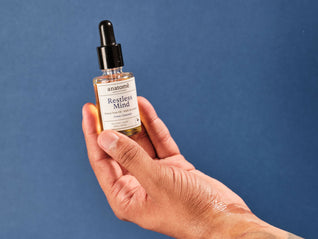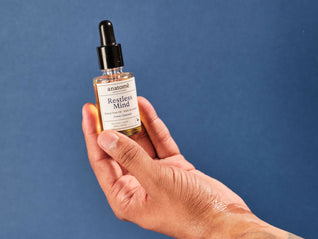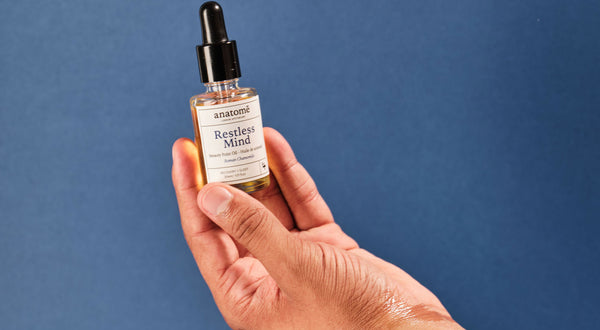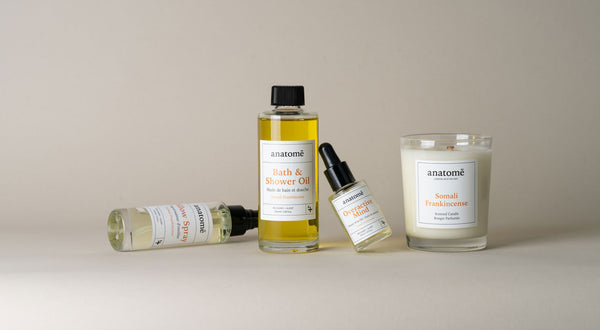Aromachology is the study of the influence of smell and different scents and how it can stimulate or trigger different behaviours, feelings and emotions within the body.
Whilst people have been aware of the way scent affects them as far back as Ancient Egypt, the scientific study of it has only been around since the 1980s (1). Scientists began to discover how scent actually impacted the mind and body and founded the study of aromachology.
Aromachologists study the way that scent interacts with the limbic system in the brain. Any time we smell something, especially in natural fragrances like essential oils, we inhale volatile particles called esters. These chemicals are what gives food flavours and allows us to smell aromatics. The sense of smell, like taste, comes from specialised sensory cells found in a small patch of tissue inside the nose (2).
When we smell something, it reaches the olfactory bulb in our brain, which is a part of the limbic system. The limbic system is linked within the central nervous system and works to affect a wide range of behaviours including emotions, motivation, and memory. Aromachologists study the ways that the limbic system is affected by different scents. For example, when we smell something like lavender, it reduces markers in the brain associated with stress, meaning that lavender has a relaxing effect on us (3).
While applications for this are still in their early stages, numerous studies have proven that the use of scent can be extremely beneficial on both the mind and body.
The use of lavender, in particular, has been looked at extensively for people dealing with anxiety and depression, but it’s not the only one. In one 2017 study, scientists found that the use of chamomile reduced symptoms of anxiety (4). And in a comprehensive review of 71 studies, researchers discovered that inhaling lavender could significantly lower anxiety levels (5). These are just a couple of the incredible benefits that essential oils can have.
Additionally the use of Rosemary essential oil, which is a known anti-inflammatory and has antibacterial and pain relieving properties, has been used for centuries as a folk medicine. But recent research has found that rosemary oil helped reduce insomnia and relax muscles, which can help get rid of headaches (6).
Cypress, peppermint, tea tree, juniper, and other essential oils have all been found to have powerful anti-inflammatory effects. Ingesting thyme, oregano, caraway, and rosemary oils have been found to activate the remission of colitis. Since bacteria has rudely started to become antibiotic-resistant, there has been a renewed search for compounds that can fight bacterial infections. Some studies have found a positive correlation between cinnamon, cardamom, clove, and tea tree oil and antimicrobial effects (7,8).
These are just a few of the benefits that aromachology studies have discovered in the last few decades. As more research is done on the use of scent, we’re sure to discover more benefits.
References:- https://www.tsbvi.edu/
- https://www.ncbi.nlm.nih.gov/pmc/articles/PMC3231408/
- https://www.ncbi.nlm.nih.gov/pmc/articles/PMC5646235/
- https://www.sciencedirect.com/science/article/pii/S0944711319303411?via%3Dihub
- https://www.ncbi.nlm.nih.gov/pmc/articles/PMC3905473/
- https://www.ncbi.nlm.nih.gov/pmc/articles/PMC3853939/
- https://www.ncbi.nlm.nih.gov/pmc/articles/PMC1360273/


































